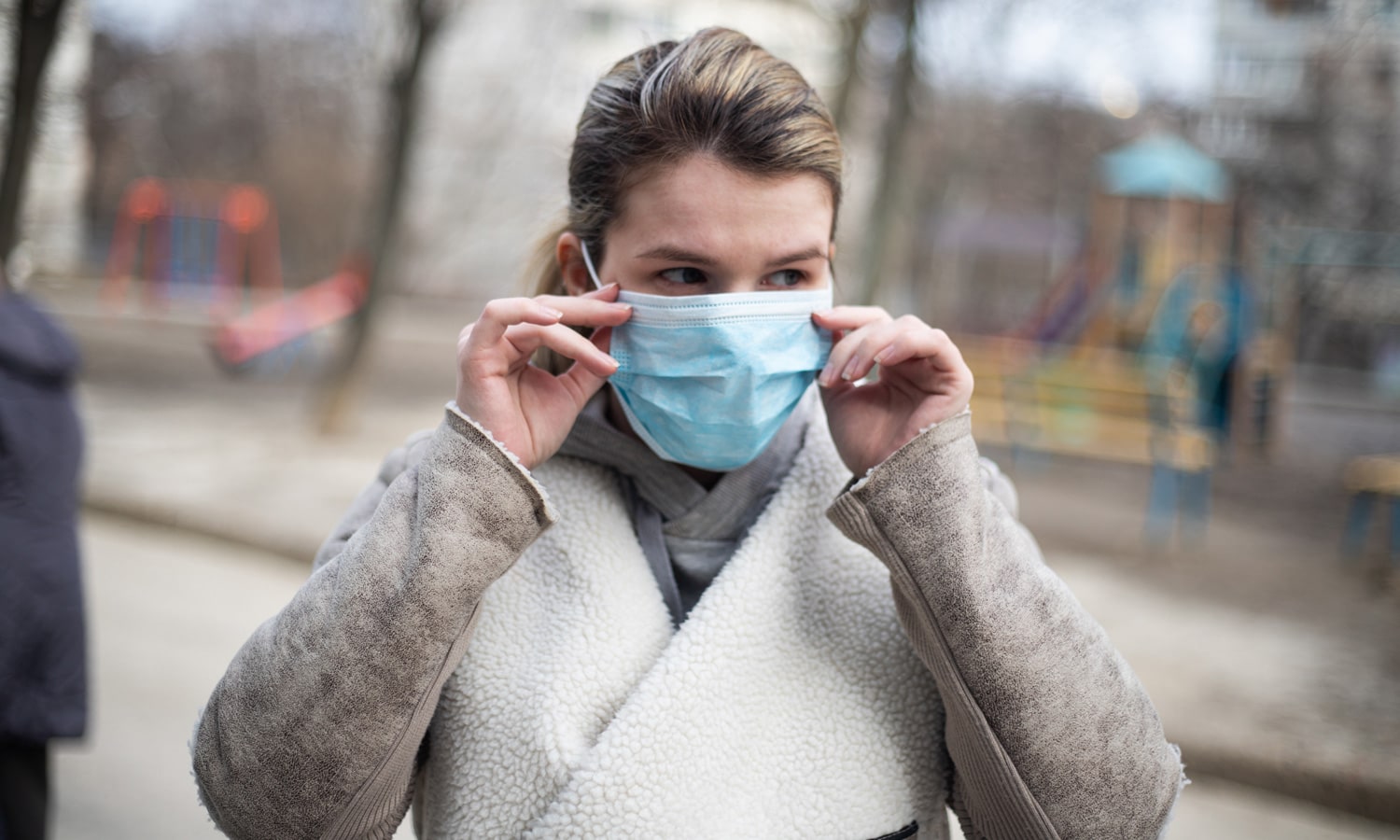Wearing face masks for prolonged periods of time can affect your skin. Here’s how CBD might be able to help.
At this point in the pandemic, people should have a wide assortment of masks at their disposal. Despite the weird politics that shroud them, health experts believe masks and social distancing guidelines are the strongest (not to mention easiest) measures people can take when it comes to battling the spread of the virus.
Despite their health benefits, the prolonged use of face masks and the addition of hot weather isn’t very healthy for your pores. These issues can produce irritated skin, moist environments, and even “maskne,” which is exactly what it sounds like: acne caused by prolonged mask wearing. Could CBD help treat these irritations and conditions?
RELATED: Lighting Up For Better Skin: Can Marijuana Help Acne?
There’s a lot of CBD topicals on the market, even if there’s not heaping amounts of scientific evidence out there to back up their claims. The research that does exist, however, points a spotlight on CBD’s effect on inflammation, which is why so many skincare brands are obsessed with the compound. These anti-inflammation properties can help battle rosacea, eczema and psoriasis — conditions that are all made worse by the constant use of masks.

When it comes to acne, CBD could also have an effect. Some studies believe CBD can manage oil production in the skin while also administering antimicrobial effects. These effects could help those at risk of developing facial yeast infections — something that could happen if the person struggles with conditions like diabetes, a compromised immune system, antibiotic use or poor hygiene.
RELATED: Can You Get A Yeast Infection On Your Face From Wearing A Mask?
CBD won’t hurt your face, especially if you’re using a high-quality product. Many elements in skincare products aren’t FDA regulated, which means that you shouldn’t discard CBD just because it doesn’t have the necessary accreditations. CBD is a safe compound that will most likely provide benefits if used within a trusted topical or product.
Still, if you’re experiencing severe skin care issues due to your mask, a dermatologist might give you the best advice, likely recommending a list of products that might best suit your needs.


